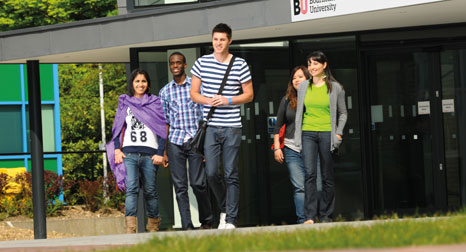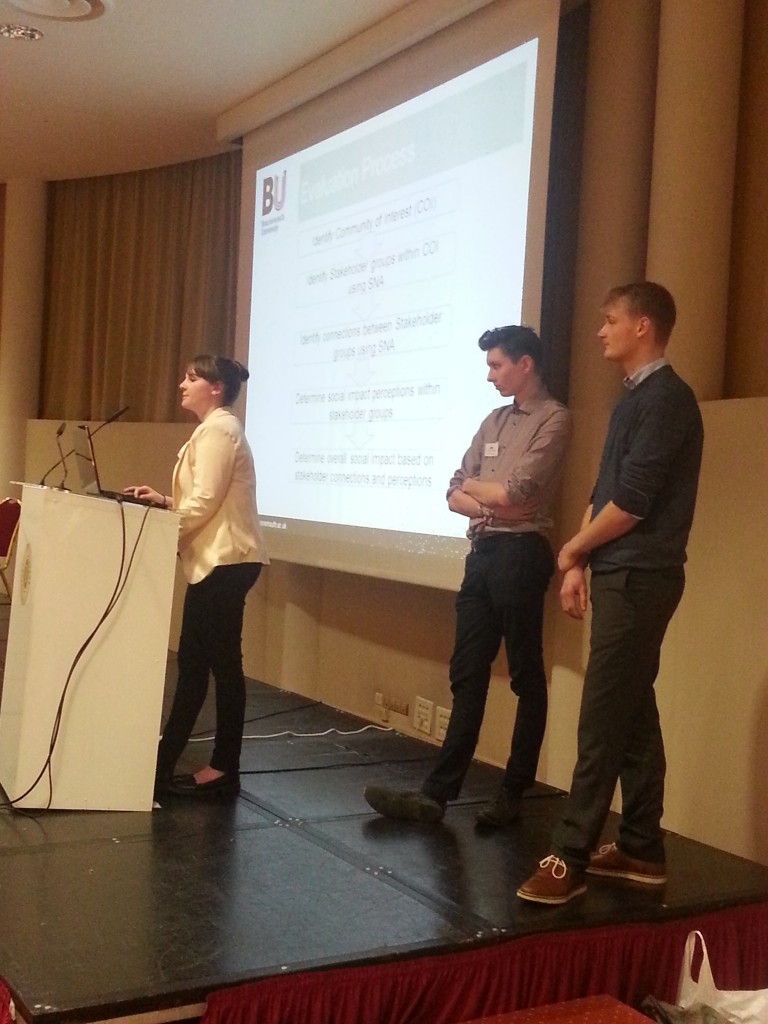Student experience news, more guidance on reopening, OfS share analysis, and Wonkhe highlight some uncomfortable exclusions within the additional student number place bidding requirements.
Reopening campus
The OfS has published Guidance for providers about student and consumer protection during the coronavirus (COVID-19) pandemic. It includes
- Protecting student interest by providing clear and timely information (current and prospective students)
- Ensuring T&Cs and complaints processes are accessible and fair
- Providing alternative teaching and support that is broadly equivalent to the usual arrangements
- Projecting and considering the students most vulnerable to disruption (unwell, self-isolating, international students, those struggling to engage with remote learning, care leavers, estranged students and students with disabilities).
- Engagement with student unions
- Prospective students should understand what the institution plans to deliver during the disrupted period and plans in place should matters change. Enough information is required for the student to make an informed decision about whether to commence the course with the adjustments in place or whether to defer or go elsewhere. As the plan can be a moving feast providers should be clear what is definite and what is fluid. Including the differing scenarios, i.e. as restrictions ease and what can be expected from any face-to-face teaching in each scenario version.
- When students can change their mind about the offer is also set out.
- Fee levels should be clear including if reductions will be made as a result of the disruption and, if so, when students can expect fee levels to return to normal.
Nicola Dandridge, Chief Executive of the OfS stated:
- These are exceptionally challenging times for both students and universities, but students must be told clearly how their courses will be taught next year.
- While many universities and colleges have responded to the crisis with innovation and ingenuity, all current students have had their studies disrupted. Any adjustments that continue into next year must be clearly communicated, and students must have access to a transparent and flexible complaints process should they feel that suitable changes have not been made.
Research Professional cover the guidance here.
Wonkhe have four offerings:
- OfS’ Susan Lapworth introduces the latest regulatory guidance on student consumer rights during the Covid-19 pandemic.
- The OfS guidance is about making accurate predictions and promises to students. Jim Dickinson peers into the crystal ball.
- Both DfE and OfS have been telling students to complain if the “quality isn’t there”. Jim also digs into the possible rationale for a Covid complaint.
- And over on Wonkhe SUs, Winchester SU President Megan Ball calls for honesty about uncertainty when communicating student life in September.
The DfE published HE Reopening Buildings and Campuses – just after UUK and others issued their guidance (and some time after universities have already made and publicised decisions). The guidance restates all the sensible common sense approaches the sector is already adopting. It also mentions the OfS quality and standards guidance.
On the curriculum the guidance states:
- We recognise that, for many courses, online teaching and learning is working effectively and has a high degree of learner engagement (while it will also benefit those who are not able to physically attend, for example those with family members who are shielding). You should identify the appropriate mix of online and face-to-face content for each subject, reflecting what will maximise learning as well as supporting more vulnerable learners, and enabling the provider as a whole to minimise transmission risk.
- Certain types of course, for example in the performing arts, have involved a degree of practical face-to-face teaching and assessment…You might consider how to encourage new ways of delivering in-person teaching and assessment that adhere to guidelines on social distancing, so that all students can receive a high-quality educational experience in a way that protects both students and staff.
On international students the government warns universities to make provision to support the 14 day self-isolation and requirement to adhere to safe travel between arrival in UK and the self-isolating accommodation destination. Furthermore, to ensure students are safe and well looked after during the 14 day self-isolation period. The guidance states:
- While it is for institutions to decide how they support international students, we believe it is important that you make every effort to welcome them to the UK and your responsibilities should start as soon as a student lands, if not before. And: You should also consider the needs of students, including international students, who may be suffering hardship or be without the ability to travel as a result of the outbreak.
There are also the expected reminders around duty of care, student and staff wellbeing and suicide prevention (both of which are Governmental priorities).
Wonkhe report on Life interrupted! Report 4 stating that
- students are unhappy about “full fees” because of perceptions that their learning experience, or the wider student experience, will be compromised.
- Prospective students are willing to accept limitations on learning in September provided that additional academic support is readily available, and that contingency plans are made for practical aspects. They are also concerned about the social aspects they will be missing out on – and are hoping that universities and/or students’ unions will help to provide alternative arrangements including delayed freshers events, online societies and a virtual introduction to their peers. Students are most keen to meet those with a shared choice in subject, societies and accommodation.
The Times published this ‘advice’ in a student’s opinion piece: Without free-range socialising, university life will be barren: are you planning to start university in September? My advice is run for the hills and defer. The first year of university is too important to be conducted in a socially-distanced manner, and not worth the £9,250 it will cost you. Not quite as drastic as it seems it goes on to mention all the life learning that students fear missing out on: Conversations at all hours of the day and night are where ideas are exchanged, opinions formed, and insights shared across subjects. It is interesting as a young undergraduate perspective but also for demonstrating affluent privilege and not recognising all the commuter students, carers, and online students who do not have access to this experience throughout their HE journey.
Deferrals: A Guardian article highlights the on-course students who are not being permitted to defer their studies due to C-19. Meanwhile Wonkhe report:
The Telegraph covers worries among major student landlords that Covid-19 might lead large numbers of students to defer, disrupting their reliable revenue streams; and has advice for students considering deferring their place at university, including reasons why that might be a bad idea.
The BBC also has advice for students considering deferring the start of their academic studies due to Covid-19.
The BBC look at the gap year as a choice forced by the pandemic.
Students Parliamentary Questions
- Government expectations for September in HE institutions
- Student nurses not completing placements/clinical practice – 31 July end date.
- Expectation for student accommodation non-eviction policy.
Student Academic Experience Survey
The Higher Education Policy Institute (HEPI) and Advance HE published the results of the 2020 Student Academic Experience survey. Jane attended the launch webinar which was different from the last few – no big ministerial speech and a reflective approach on the experience of under-represented and disadvantaged groups in the pandemic and more generally, including an excellent panel presentation from the President of Bath University’s student union. There are differences in the results too, and they have analysed some of the responses into before and after lockdown. It will be interesting to see if the same approach is used in presenting the NSS results, which are due on 15th July now (a delay from the original 1st July date).
It is worth reading the report in full but here are some headlines:
- Value for money perceptions have fallen again, after a rise over a couple of years – possibly linked to the pandemic as students were interviewed before and after lockdown and those interviewed after lockdown gave a lower response.
- The decline was most keenly felt by students in England and Scotland (which may not be where they are studying). Students from outside the EU showed an increase in their perception of value for money.
- Cost is always a factor driving negative perceptions. This year 7% said “another reason” which is unusual for this survey and they mentioned contact hours linked to strikes and the pandemic.
- There are interesting charts on the impact of paid employment – which is increasing, which raises concerns about financial hardship next year when job may be harder to find.
- There is an uptick in people saying that their experience has been better than expected.
- Different ethnic groups have very different perceptions of their experience
- There is also a set of challenges around clearing students. AS the government is trying to encourage more students into clearing this year to change their choices it will be interesting to see what impact this has. There is a challenge for universities here to address these issues.
- A real challenge around student wellbeing – linked to concern about the future and students who feel that they have learned a lot may be better prepared.
- New question – why did you go to university – focus on career and skills in terms of what will determine their future success.
- There is growing support for university spend on areas that are not student facing – including research, management and financial support. There is an increase in support for spend on student support.
- Technology results are interesting especially given the impact of the pandemic– better technology has a good correlation with good experience.
Continuation, participation and attainment
The OfS published Differences in student outcomes: further characteristics examining the impacts of care experience, free school meal eligibility, parental higher education, sexual orientation and socio-economic background on outcomes in higher education. It is an experimental release ‘ad hoc statistical report’. It looks for answers on the differences in continuation rates, attainment and progression but other factors are omitted, there is no weighting or statistical modelling and – sadly – they do not look at the interaction of factors (which limits its usefulness). It really is a first stab at considering additional factors. The definition of continuation, attainment and progression is explained in point 10 on page 4. The definitions of care, free school meals, etc, can be seen on page 6. The OfS also looked at gender identity and religion/belief but the data integrity wasn’t high enough to include these factors within the report.
The report aims to look at the differences in by the below five additional outcomes which are not usually included within the OfS access and participation sector-level summary because identifying differences in outcomes is a key part of the OfS approach to access and participation and allows the OfS and higher education providers to make targeted decisions to reduce and remove these differences.
Effect of Care
Care experienced students have lower continuation and attainment rates than non-care students (5.6% lower continuation; 12% lower attainment). However, their progression rate is 0.4% higher than non-care students.
The continuation rates of students who have not been in care have changed little between 2014-15 and 2017-18 but during this time the continuation rates of care experienced students increased. This means the difference in continuation rates has been shrinking.
Effect of Free School Meals
Students who were eligible for free school meals (FSM) have lower continuation (5.4% lower), attainment (13% lower) and progression rates (5%) than students who did not receive them when at school. Students who receive free school meals are also less likely to access HE in the first place (26% of FSM pupils versus 45% of non FSM pupils). So FSM correlates highly with the POLAR measure which measures how likely people living within a certain geographical area are to progress to HE. There is a slight widening in the attainment rate gap. And as outlined above there is a big gap in progression to highly skilled employment/
Effect of Parental HE experience
A student who attends HE when their parents didn’t is one of the social mobility markers – access to HE is broadly the same between those whose parents did and didn’t not attend HE. However, students whose parents did not attend HE have lower rates across all 3 categories – continuation 3% lower; attainment 6% lower; 2.6% lower progression. The continuation rate gap is slowly increasing over time for this group.
Effect of Sexual Orientation
Continuation rate of LGB (lesbian, gay and bisexual) students was 1% lower than heterosexual students; those classed as not heterosexual or LGB was 5.6% lower than heterosexual. The attainment rate of LGB was 2.4% higher than heterosexual, but those not heterosexual or LGB was 7% lower than heterosexual students. There isn’t data for progression to lack of data collected in earlier years.
The difference in continuation rates between heterosexual students and LGB students has been shrinking while the difference between heterosexual students and students who are not heterosexual or LGB has been growing.
Effect of Socio-economic background
Continuation and attainment rates reduce as socio-economic background (measured by NS-SEC) becomes less advantaged. Comparisons were made against the students with parents in higher level professions. Those with parents in intermediate occupation have a 2% lower continuation rate, 5% lower attainment rate. With bigger differences for students whose parents work in routine and manual occupations or are unemployed. There isn’t data for progression due to lack of data availability.
Continuation rates dropped slightly between 2015-16 and 2017-18 for all socio-economic backgrounds but this drop was larger for students whose parents do not work in higher occupations, meaning the differences in continuation grew between 2015-16 and 2017-18.
Students with parents classified in the unemployed category also fare worst in the attainment rates.
While this national picture provides some interesting, and unsurprising, benchmarks the lack of intersectionality of the data highlighting the overlaps between the categories considered limits its overall use. However, institutions are already looking at combination of characteristics and their APP plans address the gaps identified. It does provide fair warning that the OfS is more willing to tackle wider factors and the report states that OfS plan to take a similar first look at estranged students, household residual income and children from military families in the future.
Chris Millward, OfS Director for Fair Access and Participation at the OfS, stated:
- The biggest equality gaps – access to the most selective universities and the black attainment gap – are still our top priorities. But there are important new insights in this data which universities and colleges can use to improve their support for students during the courses. Students who have overcome barriers to get into higher education may need more support once they arrive to ensure that they unlock their potential, but we know that when this happens they do succeed.
- Care experienced students are already severely underrepresented in higher education, so it is particularly important that universities and colleges improve their support for this group to ensure that they stand to benefit from the experience when they get in.
- The current crisis has revealed different experiences and outcomes across our educational system, so it is more important than ever to maintain our focus on tackling inequality in higher education. We have been clear throughout the pandemic that we still expect universities and colleges to meet their financial commitments to support the most disadvantaged students on course, and we have given them the flexibility to put more funding into this for crisis support.
- As the country begins to move out of lockdown, we will now be working closely with universities and colleges to get their plans to tackle equality gaps back on track.
The attainment gap in primary and secondary schools narrowed between 2011-19. However, at the Education Select Committee session (3 June) concerns were expressed that C-19 would wipe out this narrowing. The Educational Endowment Foundation representative stated the primary gap would widen from 111 to 75% between March and September 2020. The Sutton Trust agreed the gap would widen. This may have a future knock on effect for HE provision gap reduction measurements. Alongside this it was noted that C-19 would lead to significant numbers of newly-disadvantaged pupils, particularly in already geographically deprived areas.
Admissions and student number controls
Student Number Controls
Wonkhe highlight that analysis of the criteria for bidding for the 5,000 non-healthcare additional student numbers excludes every institutional member of Million Plus and includes every member of the Russell Group. The eligibility criteria, based on absolute (non-benchmarked) values for highly skilled graduate employment and student continuation as used in the Teaching Excellence Framework (TEF), work to exclude providers who recruit large numbers of students from disadvantaged backgrounds.
- Greg Walker, chief executive of Million Plus told us: “It is not clear why the government used the particular exclusion criteria they did, when their own published TEF ratings were available to them. Even better would be to use criteria that related to the quality of the programmes themselves, rather than metrics directly linked to the socio-economic background of the student body and the academic selectivity employed by the university.”
The detail and examples are in this Wonkhe blog; it concludes:
- we have an emergency growth policy that primarily supports well-off applicants attending established universities. And we deserve better.
The comments responding to the article are worth a read too (e.g. All this will do is create a further layer of privilege, for both students and institutions, in an already uncertain time).
International Student Outlook
Research Professional cover the latest survey, this time from the British Council, examining 8 East Asian regions. They draw on the survey results to predict:
- UK universities face at least a £463 million shortfall in the coming academic year as a result of decreased international student recruitment from these regions and the associated loss of fee income. In fact, there will be “nearly 14,000 fewer new enrolments from east Asia in 2020-21 compared to the 2018-19 academic year”, the analysis suggests—a 12 per cent decrease. The figure of £463m is roughly equivalent to the annual income of a large UK university.
- the British Council estimates that there could be a 61 per cent decrease in new enrolments from the eight territories, meaning more than 68,000 fewer students than in 2018-19. This would mean a £2.3 billion decline in tuition fee income for UK universities. And that is before you consider whether current students opt to continue their studies.
- The British Council says that prospective postgraduate students “overwhelmingly prefer to delay plans for a face-to-face start in January 2021”. Indeed, 63 per cent of would-be postgrads favour a face-to-face start to their course in January 2021, compared with just 15 per cent who would like to kick things off online this September.
- Since most postgrads are heading to the UK to study one-year masters courses, they have the most to lose if there is significant disruption to their first term
British Council report author, Matt Durnin, said:
- Prospective international students are facing a lot of uncertainty, but many are clearly trying to find a way to keep their overseas study plans. There is a window of opportunity over the next two months to create a greater sense of certainty about the upcoming academic year. If responses are clear and quickly communicated to prospective students, UK higher education will face a much more manageable scenario.
- The potential short-term shock to the system caused by the recruitment dip may take three or four years to recalibrate.
Media coverage in The Times, Telegraph, Guardian, ITV news. UUK also write for Research Professional (and their own blog) urging for comms and clarify so that international students understand they quality for the post study work visa despite an online start to their course. They also call for the visa window to be lengthened to accommodation the indecision surrounding the ongoing C-19 pandemic.
On Friday the Universities Minister announced the appointment of an International Education Champion, Sir Steve Smith (ex VC Exeter University), at the British Council’s launch event. The Government’s press release describes the Champion’s role: to work with organisations across the breadth of the education sector, including universities, schools, the EdTech industry, vocational training, and early years schooling providers. The Champion will also target priority regions worldwide to build networks and promote the UK as the international education partner of choice…spearhead overseas activity and address a number of market access barriers on behalf of the whole education sector, including concerns over the global recognition of UK degrees.
Donellan also spoke of international student visa flexibility and stated: International students are an integral part of our society, culture and economy… I want to stress to overseas students at this unprecedented time that they will always be welcome in this country. Supporting international students is one of our top priorities and we are working hard to make sure we are as flexible as possible and make processes as easy as they can be, including around current visa regulations. Now, more than ever, it is critical we work together internationally, sharing our knowledge to mitigate the challenges we all face.
The press release continues: A letter from the Universities Minister to international students last month detailed a number of measures designed to safeguard students from the impacts of Covid-19 and enable them to continue their studies as planned.
These include temporary concessions to mitigate the impact of Covid-19 and ensure the immigration system is as flexible as possible, the launch of the new points-based Student route later this year and the new Graduate Route in the summer of 2021, which will enable international students who have been awarded their degree to stay and work in the UK at any skill level for two years.
The Minister’s response to this parliamentary question contained similar content to the above too.
UUK’s point is to ensure the Minister is closing loopholes and confirm online post graduate starters will be eligible for the post study work visa. Here is a parliamentary question on one such loophole: International students studying less than 11 months and starting online – eligibility for graduate visa route.
Admissions PQs
- Questioning the Education Minister on what consultation was undertaken before he decided to impose student number controls on Scotland (the same Q in relation to Wales), and another on the effects of the limits.
- When Government will decide if EU students commencing 2021/22 will be eligible for UK or international fee levels.
- Whether there are any plans to assess the effect on BAME communities of the requirement that non-EU nationals must in general have indefinite leave to remain in order to apply for student finance.
- Processing visas in time for 2020-21 starts.
- How the Government intends to support universities with quarantined international students and reopening residential accommodation so international students can quarantine.
- Student nurses £5,000 award from Sept 2020.
- Interest rates for student loans
Widening Participation
HEPI have published a new blog: A call to action on widening participation in the era of Covid-19.The authors are concerned that C-19 has swept away the access gains of the last few years and call for prioritisation to mitigate the pandemic’s impact in the short term. This includes positioning work to widen participation within the Government’s levelling up agenda for each of access (pastoral support, tutoring and mentoring for year 12 and 13), student success (belonging and engagement focus for new starters, with variations for years 2 and 3) and progression (work experience – Government support for SME placements with University signposting and support). On Progression placements the authors also state:
- The Office for Students (OfS) should further relax the conditions of use for Access and Participation Plan (APP) funds to allow expenditure shortly after graduation, to facilitate APP funds to support paid internships / jobs for target graduates, rather than limiting this to current students. Evidence based approaches are emphasised throughout.
Research
Research Professional ran an article urging for a doctoral training rethink within the context of the ESRC review into the social science PhD.
UKRI Chair Sir Mark Walport published an open letter to the research community outlining UKRI’s actions and response to the pandemic.
Parliamentary Academic Fellowship Scheme – Open call
The Parliamentary Academic Fellowship scheme open call is inviting expressions of interest from colleagues with the minimum of a PhD to compile and submit a project of interest to parliament to work on as a Fellow from January 2021. These are the research blog posts providing you with the details here and here. This is the full document providing lots of lovely detail and helpful advice – in particular it highlights which elements of Parliament would welcome an approach. All Select Committees are welcoming projects plus the Commons and Lords library teams, POST and a range of other offices (see pages 10-12). This is the original website announcing the call and providing other links. Your faculty impact officer and the BU policy team are here to assist colleagues to pull together their expression of interest. The deadline to apply is Friday 26 June. The Fellowships are competitive and funding will need to be provided by BU (unless the colleague has access to an external grant that may support some costs). It is important you speak to your Faculty Dean in advance of the expression of interest. Faculties are considering support on a case by case basis. Successful projects will be asked to progress to the full application phase in September. The Fellowships are prestigious and provide unparalleled access to Parliament, allowing you to understand the inner workings of policy, establish contact networks and working relations, and likely provide a big impact and exposure boost for your research. Please share this information with all colleagues who may be interested in applying.
Research PQs
- The potential of hydrogen was raised by the Centre for Policy Studies recently and there was a parliamentary question on research funding for accelerating the production of clean hydrogen.
- What steps the Government are taking to support university students (answer not due until 17th)
- Financial support for AI research.
- Science Councils budgets’
- Whether UKRI’s Open Access policy review will be considered by the Research Sustainability taskforce. Another on the independence of the Open Access policy. And the financial impact of Open Access policy.
- Replacement for Erasmus+ student exchange scheme; Erasmus+ budget; Erasmus+ – requesting dates for Sept 2020 study abroad plans.
- Business R&D contracts ; Manufacturing R&D, R&D potential recession impact and R&D prioritisation
- Intellectual property; intellectual property post-transition period.
- Relaxing public match funding requirements.
- Royal Society President, Venki Ramakrishnan, urges the Government to end the uncertainty on Horizon Europe.
- BEIS Secretary of Stateinvolvement in research taskforce
Nursing
The Education Select Committee published the follow-up correspondence from the Secretary of State for Education on tuition fees for nursing students. The letter states:
- Nursing students who volunteer as part of the COVID-19 response will receive a salary and automatic NHS pension entitlement at the appropriate band. They will continue to be required to pay fees for their final term and will continue to receive their student maintenance loan and Learning Support Fund payments as normal. Universities will continue to provide support to students. The time that students spend in clinical practice will count towards the number of practice hours that they need to qualify
Public Perception of Universities
A Public First survey conducted for the University Alliance mission group (professional & technical universities) in May demonstrates public support for HE institutions and acknowledges their role as important for the UK’s recovery from C-19. It also recognised their role in supporting the NHS during the crisis.
- 71% people think universities will play an important role in supporting the UK’s economic and social recovery post Covid, by:
- improving scientific research for innovation and development (74%),
- training public sector workers (52%)
- providing practical support at times of national crisis (52%)
19% disagreed that universities would play an important role.
- The respondents believe universities should prioritise the supply of professionally qualified graduates – for example nurses, social workers and doctors – above all other subjects
- 62% believe it’s “very important” that universities teach applied subjects (for example nursing, medicine or engineering) as the country tries to rebuild after the Covid19 crisis overall other subjects. However,
- 50% support STEM subjects
- 24% social sciences
- 13% languages
- 12% the arts.
- 61% believe nurses and other medical professionals such as midwives, should be educated at university, and that more funding should be made available to ramp up the number of places.
- Voters identified contributing to research around a vaccine (71%), sharing laboratories and other facilities (56%) and accelerating training of nurses and other medical professionals
iNews cover the survey.
HE funding
Emma Hardy, Shadow Universities Minister, writes for Research Professional how the C-19 crisis could result in a redesign of the HE funding system to draw mature, commuter and part time students back into HE study.
Inquiries and Consultations
Click here to view the updated inquiries and consultation tracker. Email us on policy@bournemouth.ac.uk if you’d like to contribute to any of the current consultations.
Other news
Virtual future: Jisc have a blog on UUK looking at how future changes (post crisis) could take the elements of online learning that worked well in the rapid change to virtual study. The blog also links to an online webinar on 17 June on the topic. Excerpts:
- Let’s use this knowledge and new-found technological confidence to identify the methods that are working best, and expand and build on them for 2021–22 and beyond.
- those that get left behind will find it harder to compete in a system where student choice is ever more important.
- other subjects could be covered completely online, appealing to those students who might find a campus existence difficult because of a disability, mental health issue, or financial reasons.
- By developing a strategic plan to embed technological practice effectively and sustainably at scale, universities can build a solid base to thrive in future.
Plagiarism: Research Professional report on the ending of the WriteCheck service which plagiarism companies were misusing to ensure their essay mill productions slipped past the checks. Lord Story continues his campaign against contract cheating with a parliamentary question asking about the impact on academic performance in countries which have banned the cheating services.
Mergers: HEPI examine lessons learnt from private sector business mergers as the current outlook exacerbates HE institutions on the financial brink. It concludes: we need to ask if mergers are really the appropriate solution. If the underlying financial position of an institution is not sound, then a merger is definitely not the answer. In other cases, where potential changes of ownership or management are more likely to be cosmetic – to justify, for example, a financial bailout or a write-off of previous ‘debt’, rather than something that will change the underlying financial situation of an institution – then it is still unlikely that a merger can significantly improve financial performance on its own. The only exception to this rule would be if the acquiring institution changed the business model somehow, such as by moving away from research to a teaching-based model of provision. While that may offer a perceived silver lining, it hardly supports the UK’s ability to lead worldwide in higher education in the decade to come. All in all, mergers are not the magic bullet they may appear to be, and we should tread cautiously into any post-pandemic future where the pressure may be high to cutback, downsize or rescale.
OfS Student Panel: The application process for students to join the OfS Student Panel is now live with a blog on the role of the student panel here. The OfS are particularly seeking applications from:
- Pre-HE students (GCSE/A-Level, BTEC, Apprentices)
- Disabled students
- International students
- Black, Asian and minority ethnic students, students of colour and students from traveller communities
- Estranged students
- Care experienced students
- LGBTQ+ students
- Postgraduate research students
Graduate jobs: With the fallout from the C-19 pandemic compared to the 2008 financial recession the BBC have three case studies of 2008 graduates’ journey through the recession to find satisfying employment and their words of advice.
Student Complaints: The office of the Independent Adjudicator write for Research Professional to advise providers on how to support and work with students to avoid complaints.
Virtual Internships: The Times reports on the major companies who have launched a three day intensive high quality virtual internship scheme for 800,000 graduates and school leavers to replace cancelled programs due to happen over the summer.
Technical Education: The House of Commons Public Accounts Committee published a report on University Technical Colleges and its impact on Britain’s economy and job prospects, it finds that UTCs have performed less well than other secondary schools against key measures of educational performance.
BAME: Research Professional examine BAME representation at the highest levels of university management.
University Mental Health Charter: A Student Minds press release details three universities piloting the university mental health charter award – Derby, Glasgow Caledonian, and Hartpury University.
International Squeeze: Earlier in the week the Times ran an article suggesting that international students were squeezing out UK students from HE by taking up the places they could attend. Three prominent figures have written to the Times to refute this including Jo Johnson (ex-Universities Minister), Nick Hillman (director of HEPI) and Alastair Jarvis (Chief Exec of UUK).
Subscribe!
To subscribe to the weekly policy update simply email policy@bournemouth.ac.uk.
JANE FORSTER | SARAH CARTER
Policy Advisor Policy & Public Affairs Officer
Follow: @PolicyBU on Twitter | policy@bournemouth.ac.uk
 funding to support 10 UK Psychology Students and Staff to visit India. This initiative receives further support from Global Engagement Hub, Bournemouth University.
funding to support 10 UK Psychology Students and Staff to visit India. This initiative receives further support from Global Engagement Hub, Bournemouth University.
























 ESRC Festival of Social Science 2024 Open Call – Deadline for Applications Thursday 16 May
ESRC Festival of Social Science 2024 Open Call – Deadline for Applications Thursday 16 May We can help promote your public engagement event or activity
We can help promote your public engagement event or activity Horizon Europe News – December 2023
Horizon Europe News – December 2023